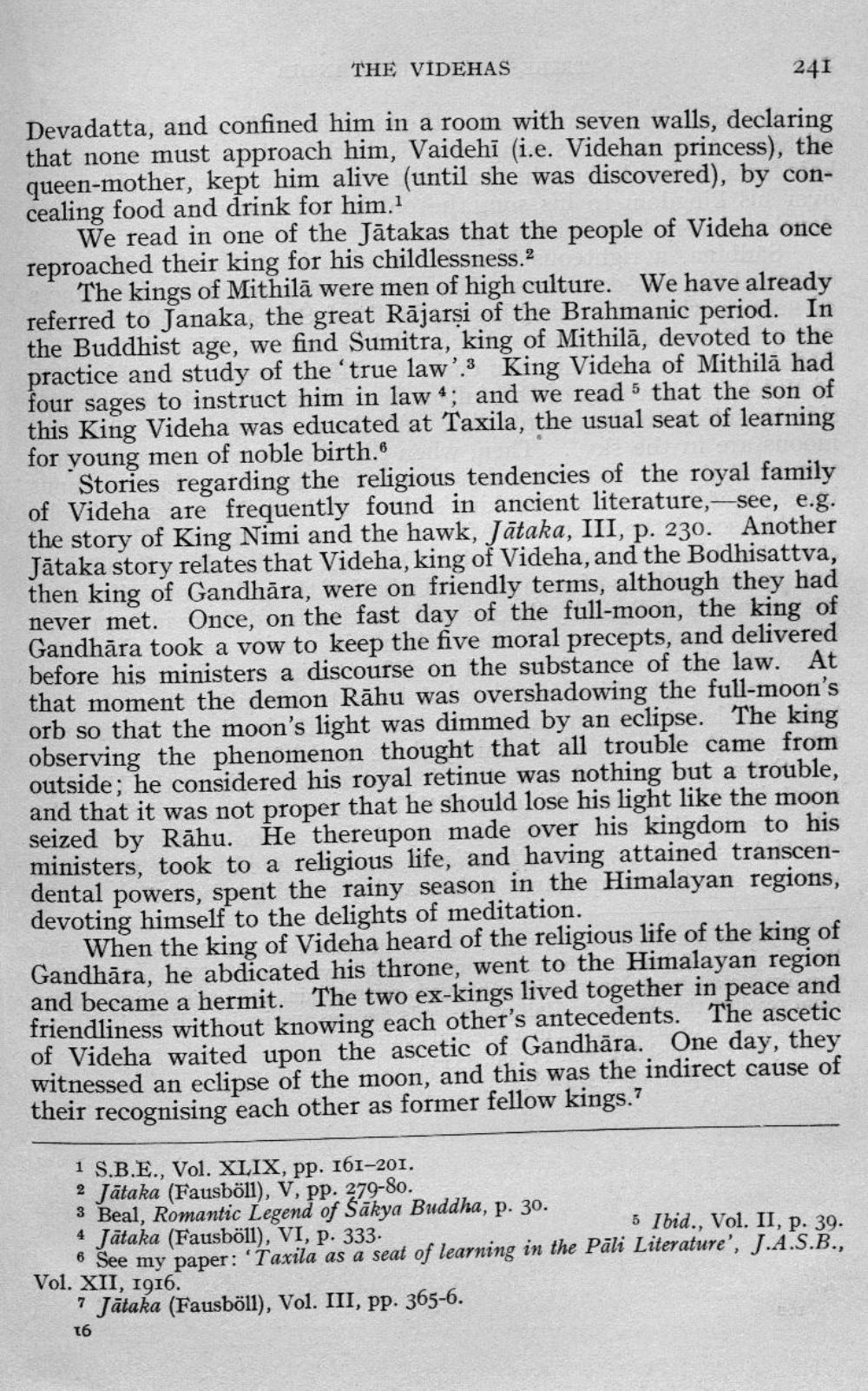________________
THE VIDEHAS
241 Devadatta, and confined him in a room with seven walls, declaring that none must approach him, Vaidehi (i.e. Videhan princess), the queen-mother, kept him alive (until she was discovered), by concealing food and drink for him.
We read in one of the Jātakas that the people of Videha once reproached their king for his childlessness.2
The kings of Mithilā were men of high culture. We have already referred to Janaka, the great Rājarși of the Brahmanic period. In the Buddhist age, we find Sumitra, king of Mithilā, devoted to the practice and study of the 'true law'.3 King Videha of Mithilā had four sages to instruct him in law 4; and we read 5 that the son of this King Videha was educated at Taxila, the usual seat of learning for young men of noble birth.
Stories regarding the religious tendencies of the royal family of Videha are frequently found in ancient literature,--see, e.g. the story of King Nimi and the hawk, Jātaka, III, p. 230. Another Jātaka story relates that Videha, king of Videha, and the Bodhisattva, then king of Gandhāra, were on friendly terms, although they had never met. Once, on the fast day of the full-moon, the king of Gandhāra took a vow to keep the five moral precepts, and delivered before his ministers a discourse on the substance of the law. At that moment the demon Rāhu was overshadowing the full-moon's orb so that the moon's light was dimmed by an eclipse. The king observing the phenomenon thought that all trouble came from outside; he considered his royal retinue was nothing but a trouble, and that it was not proper that he should lose his light like the moon seized by Rāhu. He thereupon made over his kingdom to his ministers, took to a religious life, and having attained transcendental powers, spent the rainy season in the Himalayan regions, devoting himself to the delights of meditation.
When the king of Videha heard of the religious life of the king of Gandhāra, he abdicated his throne, went to the Himalayan region and became a hermit. The two ex-kings lived together in peace and friendliness without knowing each other's antecedents. The ascetic of Videha waited upon the ascetic of Gandhāra. One day, they witnessed an eclipse of the moon, and this was the indirect cause of their recognising each other as former fellow kings.?
1 S.B.E., Vol. XLIX, pp. 161-201. ? Jataka (Fausböll), V, pp. 279-8o. 3 Beal, Romantic Legend of Sākya Buddha, p. 30. 4 Jataka (Fausböll), VI, p. 333.
5 Ibid., Vol. II, p. 39. 6 See my paper: 'Taxila as a seat of learning in the Pāli Literature', J.A.S.B., Vol. XII, 1916.
7 Jataka (Fausböll), Vol. III, pp. 365-6.
16




